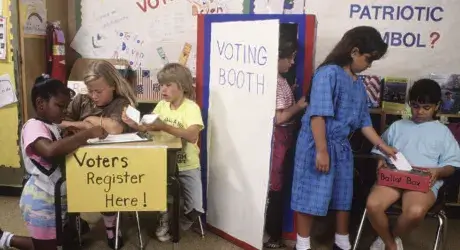Teaching Evidence-Based Decision Making in K-16 Education

This project brought together experts from education, law, statistics, economics, policy studies, and business to assess how critical thinking is taught and to propose ways to strengthen these skills.
Sound personal and public decision making requires clarity about the values at stake and an understanding of relevant facts. The premise of this study was that primary, secondary, and tertiary education in the United States does not provide citizens with adequate knowledge and skills to assess the trade-offs among competing values, deal with probabilistic facts, and make informed decisions under conditions of uncertainty.
Scholars across a range of fields believe that more can be done to ensure that education provides students with the necessary analytical skills for successful decision making. The Academy brought together educators, curricula and textbook authors, social scientists, and experts on educational assessment and developmental psychology to define and clarify the nature of the problem, assess current programs in K–16 education in the United States, and recommend steps to strengthen curricula and other means of intervention in this area.

